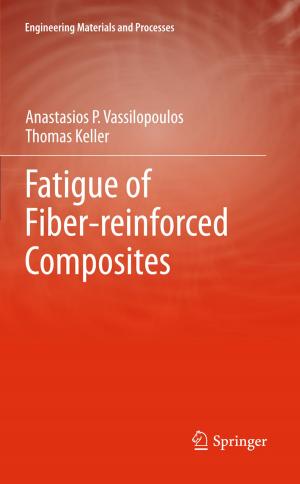Optimal Mobile Sensing and Actuation Policies in Cyber-physical Systems
Nonfiction, Computers, Networking & Communications, Hardware, Science & Nature, Technology, Engineering, Mechanical| Author: | Christophe Tricaud, YangQuan Chen | ISBN: | 9781447122623 |
| Publisher: | Springer London | Publication: | October 14, 2011 |
| Imprint: | Springer | Language: | English |
| Author: | Christophe Tricaud, YangQuan Chen |
| ISBN: | 9781447122623 |
| Publisher: | Springer London |
| Publication: | October 14, 2011 |
| Imprint: | Springer |
| Language: | English |
A successful cyber-physical system, a complex interweaving of hardware and software with some part of the physical environment, depends on proper identification of the, often pre-existing, physical element. A bespoke “cyber” part of the system may then be designed from scratch. Optimal Mobile Sensing and Actuation Strategies in Cyber-physical Systems focuses on distributed-parameter systems the dynamics of which can be modelled with partial differential equations. These are very challenging to observe, their states and inputs being distributed throughout a spatial domain. Consequently, systematic approaches to the optimization of sensor location have to be devised for parameter estimation. The text begins by reviewing the field of cyber-physical systems and introducing background notions of distributed parameter systems and optimal observation theory. New research problems are then defined within this framework. Two important problems considered are optimal mobile sensor trajectory planning and the accuracy effects and allocation of remote sensors. These are followed up with a solution to the problem of optimal robust estimation. Actuation policies are then introduced into the framework with the purpose of improving estimation and optimizing the trajectories of both sensors and actuators simultaneously. The large number of illustrations within the text will assist the reader to visualize the application of the methods proposed. A group of similar examples are used throughout the book to help the reader assimilate the material more easily. The monograph concentrates on the use of methods for which a cyber-physical-systems infrastructure is required. The methods are computationally heavy and require mobile sensors and actuators with communications abilities. Application examples cover fields from environmental science to national security so that readers are encouraged to link the ideas of cyber-physical systems with their own research.
A successful cyber-physical system, a complex interweaving of hardware and software with some part of the physical environment, depends on proper identification of the, often pre-existing, physical element. A bespoke “cyber” part of the system may then be designed from scratch. Optimal Mobile Sensing and Actuation Strategies in Cyber-physical Systems focuses on distributed-parameter systems the dynamics of which can be modelled with partial differential equations. These are very challenging to observe, their states and inputs being distributed throughout a spatial domain. Consequently, systematic approaches to the optimization of sensor location have to be devised for parameter estimation. The text begins by reviewing the field of cyber-physical systems and introducing background notions of distributed parameter systems and optimal observation theory. New research problems are then defined within this framework. Two important problems considered are optimal mobile sensor trajectory planning and the accuracy effects and allocation of remote sensors. These are followed up with a solution to the problem of optimal robust estimation. Actuation policies are then introduced into the framework with the purpose of improving estimation and optimizing the trajectories of both sensors and actuators simultaneously. The large number of illustrations within the text will assist the reader to visualize the application of the methods proposed. A group of similar examples are used throughout the book to help the reader assimilate the material more easily. The monograph concentrates on the use of methods for which a cyber-physical-systems infrastructure is required. The methods are computationally heavy and require mobile sensors and actuators with communications abilities. Application examples cover fields from environmental science to national security so that readers are encouraged to link the ideas of cyber-physical systems with their own research.















